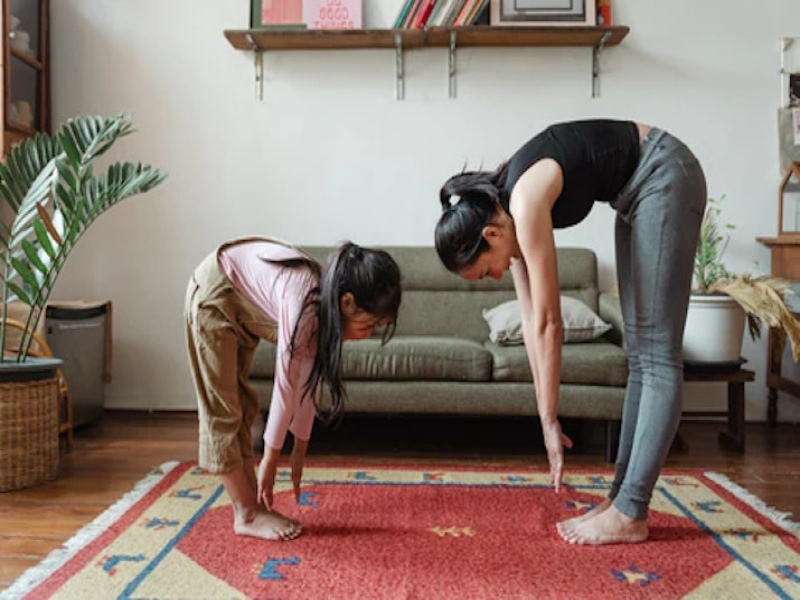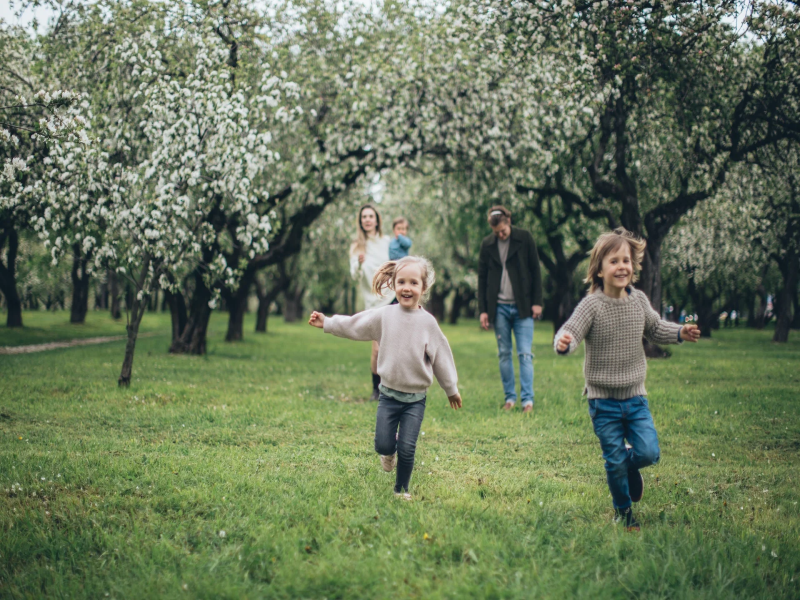Introduction – Mindfulness Hacks
Emotional intelligence (EQ) is becoming increasingly essential in the fast-paced world we live in today. It’s how we cope with and navigate our emotions — and the emotions of others. And though it can sound like an esoteric notion, it’s something that can be cultivated starting at a tender age. And that’s where mindfulness comes in, which is the practice of nonjudgmentally bringing awareness to the present moment. It allows us to be more mindful of our thoughts, emotions, and feelings. And when we can do that, we can begin to understand and handle them better. – Mindfulness Hacks
Mindfulness is one way that toddlers can learn these valuable lessons, and by teaching it to them they can practice emotional intelligence as they grow up. New skills in concentration, self-control and empathy emerge. In this blog post, I will discuss a few simple mindfulness hacks that you could use to help your toddler develop emotional intelligence.

What is Emotional Intelligence?
Emotional intelligence, known as EQ, is our superpower navigating the other world feelings. It’s the capacity to be aware of and manage our own feelings and those of others. But it goes beyond being aware of what we feel; it’s also about successfully handling those emotions and directing them toward thoughts and actions.
EQ, or emotional quotient, has five key ingredients.
- Self-awareness: It is like an internal mirror to let all your feelings reflect. It’s about being aware of whether you are happy, sad, angry or scared.
- Self-regulation: Picture a volume knob for your feelings. Self-regulation allows you to dial back the intensity of strong emotions (think anger or frustration) and respond in appropriate ways.
- Social skills: These are the tools you use to connect with others. This is about effective communication, collaboration, and relationship building.”
- Empathy: Its like putting yourself in another person’s shoes and relating the feelings. It gives you the opportunity to express compassion and kindness.
- Motivation: It is the driving force behind you that helps you reach your goals. It is all about being positive and refusing to throw in the towel.
What on earth, and why does emotional intelligence matter for toddlers? Well, it’s the bedrock of their social, emotional and academic success. Young children with high EQ (high emotional quotient) are able to:
They can (and you should encourage them to) make friends and form relationships: They can feel others’ emotions and adjust to them, so they have good social encounters.
- Possess coping skills: They can work through frustration, disappointment, and other difficult feelings.
- Process and learning: They can control their own emotions, which helps their attention and concentration.
- Build self-confidence: By knowing their emotions they get more secured and confident in themselves.
Developing emotional awareness in toddlers gives them foundational social skills to help them succeed in all aspects of life.
How Can Mindfulness Help Toddlers Build Emotional Intelligence?
Mindfulness is our superpower that keeps us from running away with our thoughts and feelings away from the moment at hand. It’s like pressing the “pause” button on the zealous minds we can become and just observing what we are experiencing around us and within us.
That said, what does mindfulness have to do with emotional intelligence? Well, it’s as if you’ve handed toddlers a magnifying glass and let them inspect their emotions. When practicing mindfulness, toddlers are able to:
- Become more aware of their feelings: Encouraging mindfulness can help toddlers connect with their bodies and observe the physical sensations associated with various feelings. For instance, they may realize that they have a more rapid heartbeat when excited or a tight tummy when anxious.
- Learn self-regulation skills: When toddlers can understand their emotions, they can begin to regulate them. Mindfulness gives them resources for soothing themselves when they’re angry, focusing their attention and making deliberate choices.
- Foster empathy and kindness: When toddlers notice how others feel, they learn empathy. They learn to identify with and feel compassion for their friends, family, and even storybook characters.
- Enhance focus and attention: Mindfulness enables toddlers to strengthen their attention muscles. This enhances their ability to learn, follow given directives and participate in activities.
Consider mindfulness as a practice space for emotional intelligence. As you probably know, it gives toddlers the skills and awareness they need to understand and deal with their feelings — which, in turn, promotes better relationships, self-regulation and well-being.
Mindfulness Hacks for Toddlers
And now let’s just zoom into some super simple mindfulness hacks that you can absolutely build into your toddler’s everyday routine:
Breathing Exercises
Breath exercises are a great introduction to mindfulness for toddlers. They are easy, fun, and able to be done anywhere, any time. Here are a few ideas:
- Belly Breathing: Have your toddler lie on their back with a stuffed animal on their tummy. Suggest they watch the animal rise and fall with their breaths, inhaling and exhaling.
- Bubble Breathing: Have your toddler blow bubbles and try to take deep breaths so they can blow big bubbles. This helps connect their deep breathing to a fun activity.
- Flower and Candle Breathing: Encourage your toddler to pretend they are smelling a flower (inhale) and blowing out a candle (exhale). This visual imagery makes breathing exercises more exciting.
Tips for Success:
- Playful: Turn breathing exercises into a game, not a chore(s). Use silly voices, sing songs or create stories based around the exercises.
- Take baby steps: First, practice only a few minutes a day and slowly increase over time when your toddler gets more comfortable.
- Build them into routines: Include breathing exercises to your daily routine, such as before bed, after a tantrum, or at times of transition.
Sensory Activities
Well, toddlers are very curious, they love to explore the world with their senses. Sensory activities are a great way to engage your child and to promote mindfulness. Here are some ideas:
- Playdough: Toddlers can enjoy exploring the different textures and shapes of playdough. Encourage them to pay attention to the sensation of the dough in their hands and the way they twist and turn to mold and create.
- Nature Walks: Go on a nature walk with your little one and ask them to pay attention to the sights, sounds, and smells in their environment. Help them notice the variety of colors of the leaves, sounds of birds chirping and the sensations of grass underfoot.
- Water Play: Fill a basin with water and give your toddler various toys to play with. Prompt them to notice how the water feels, and its temperature, as well as the sounds of splashing and playtime.
- Soothe with Music: Put on mellow music or nature sounds and ask your toddler to listen quietly. You could even try dancing or moving in a mindful manner to the music.
Tips for Success:
- Establish a sensory zone: Designate a space in your house that is specifically for sensory play for your toddler, minimizing distractions.
- Give textures to feel: Let your toddler experience different kinds of textures like soft fabrics, rough stones, smooth pebbles, squishy toys, etc.
- Practice mindfulness: Have your toddler say what they see, hear, taste, touch or smell in the moment. Ask questions such as, “What do you see?” “What do you hear?” “How does it feel?”
Mindful Movement
Toddlers jump, twirl, climb, turn cartwheels, etc — movement is innate; a means of self-expression; a way to expel pent-up energy. Mindful movement activities help to build their body awareness, facilitate emotional regulation and create a feeling of calm. Here are some ideas:
- Toddler Yoga: Teach them simple yoga poses like the tree pose, downward-facing dog and the butterfly pose. Encourage your toddler to pay attention to their breath and how their body feels as they transition in and out of the poses.
- Stretching: Lead your toddler through some gentle stretches, encouraging them to notice how it feels when their muscles lengthen and relax.
- Dancing: Turn on some music and have your toddler dance however they want. Let them use their movements to express their emotions.
Tips for Success:
- Add fun: Use songs, stories or animal sounds to make creative movement activities more playful.
- Baby steps begin: For this reason, start with even a few minutes of mindful movement and work your way up as your toddler’s attention lengthens.
- Get in on the action: Do the activities with your toddler to set an example of mindful movement and to do something together.

Storytelling and Creative Expression
Reading stories and doing creative play offers toddlers a safe place to work through feelings and gain empathy. Here are some ideas:
- Read books about feelings: Select books that cover various feelings and talk about how the characters feel with your tot. Try asking things like: “How do you think the character is feeling?” and “What if you felt like that?”
- Get out the drawing and painting supplies: Let your toddler know that it’s OK to talk verbally about their feelings in words, but help them understand that it’s not always easy and sometimes that’s where drawing or painting comes in to help. Discuss the colors they select and the pictures they paint.
- Play pretend: Pretend play lets toddlers step into new characters and try out a variety of feelings. Have them play out the scenes and how the characters would feel.
Tips for Success:
- Ask open-ended questions. Encourage your toddler to tell you how the stories and activities make him feel and what he thinks about them.
- Validate their emotions: Be sure your toddler understands that it’s perfectly normal for them to feel everything that is going on inside of them — and that it’s vital that they do so in a healthy manner.
- Get creative: Using puppets, stuffed animals or props can make storytelling and creative activities more interactive and fun.
Mindful Eating
For many parents of toddlers, mealtimes are stressful. But they can also represent an opportunity for practicing mindfulness and developing healthy eating patterns. Here are some tips:
- Get them to eat slow: They should enjoy every bite of their meal.
- Keep the focus on the senses: Describe the various colors, textures, and flavors of the food.
- A minimum of distractions: Switching off the television and putting away telephones during mealtimes engenders a more physical environment.
- Practice gratitude: Content yourselves before eating, take a moment to appreciate the food, the labor that went into producing it, and the people who prepared it.
Tips for Success:
- practice mindful eating: model mindful eating for your toddler by leading by example.
- Serve small: Give your toddler small portions so they don’t feel overwhelmed by too much food on their plate.
- Be patient: Your toddler may take time to adjust to mindful eating.
Gratitude Practices
Gratitude is a positive emotion strengthened well-being and happiness. Even toddlers can begin to appreciate the good in their lives. Here are some ideas:
- Thank you cards: Have your toddler make simple thank you cards for gifts/acts of kindness.
- Nature appreciation: Go for a walk in nature and point out things you are grateful for like the sun, the trees, the birds.
- Gratitude jar: Attach a label to a jar and have your toddler fill the jar with things they appreciate by writing or drawing.
Tips for Success:
- Include it as part of your daily life: Write down what you are grateful for before you go to bed or during mealtimes.
- Make it simple: Use the language suitable for their age and do activities that they can easily comprehend.
- Model: Say thanks on a daily basis in your own life to demonstrate it for your toddler.
Tips for Parents and Caregivers
In teaching toddlers’ mindfulness and emotional intelligence, as parents and caregivers we are pivotal. Here’s what you should keep in mind:
- Be an example: Kids learn by observing us. Lead by your actions by practicing mindfulness in your own life, your toddler will follow.
- Make a calm environment: A calm and supportive environment can make toddlers feel safe and secure, allowing them to practice mindfulness with ease.
- And be patient and consistent: Mindfulness requires practice. Encourage your toddler to keep trying even if they don’t get it right away.
- Make it fun: Mindfulness doesn’t have to be a chore. Do it in a way that makes it fun for you and your little one.
- Find allies: Seek other mothers for camaraderie, or ask general mindfulness-support agencies for help.
Benefits of Mindfulness for Toddlers Beyond EQ
Every advantage of emotional intelligence is great, but mindfulness has a range of other benefits for toddlers as well:
- Better focus and concentration: Mindfulness helps toddlers train their attention and improves their ability to focus on tasks and learn new things.
- Lesser Stress and anxiety: Very much similar to the self-soothing of toddlers mindfulness techniques can really help the toddlers to calm down themselves during a state of over-excitement or anxiety.
- Enhanced self-esteem: As toddlers learn to identify and manage their emotions, they feel more assured of their ability to overcome obstacles in their world.
- Fostered creativity: Mindfulness helps encourage toddlers to stay in the moment and experience the world around them, which can stimulate their imagination and creative energy.
- Improved sleep: Mindfulness exercises can help young children wind down and get ready for bed, which can contribute to better quality sleep.

Conclusion
In a reality full of distractions and noise demanding our focus and fragments of time, mindfulness is a refuge of peace and presence. It instills children with metal tools to survive this thing we call life. These mindfulness hacks can set the foundation for toddlers to start building emotional intelligence and focus skills, as well as reducing stress and fostering a feeling of well-being that can carry on their entire life.
Keep in mind, that mindfulness is a journey, not a destination Once again, start little by little, practice persistence and have fun guiding your toddler to become a more mindful and emotionally aware person.
References
- Mindful Discipline: A Loving Approach to Setting Limits and Raising an Emotionally Intelligent Child by Shauna Shapiro, PhD and Chris White
- The Whole-Brain Child: 12 Revolutionary Strategies to Nurture Your Child’s Developing Mind by Daniel J. Siegel, M.D. and Tina Payne Bryson, Ph.D.
- No-Drama Discipline: The Whole-Brain Way to Calm the Chaos and Nurture Your Child’s Developing Mind by Daniel J. Siegel, M.D. and Tina Payne Bryson, Ph.D.
- Peaceful Parent, Happy Kids: How to Stop Yelling and Start Connecting by Dr. Laura Markham
- Raising an Emotionally Intelligent Child by John Gottman, Ph.D.







